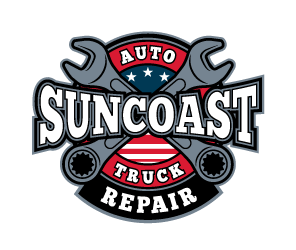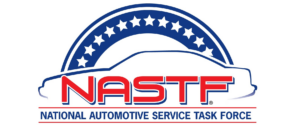Proud Member of NASTF


Are you a proud owner of an RV? Then you know that keeping your home on wheels in top-notch condition is essential for a smooth and hassle-free journey. From routine maintenance to troubleshooting common issues, taking care of your RV can save you time and money in the long run.
In this article, we will provide you with expert tips and tricks to ensure your RV stays in great shape, allowing you to enjoy your adventures without any unexpected breakdowns or repair bills. Whether you are a seasoned RV enthusiast or a newbie on the road, our comprehensive guide will cover all aspects of RV repair and maintenance.
Regular maintenance is the key to keeping your RV running smoothly. Just like any other vehicle, your RV requires regular checks and upkeep to ensure optimal performance and avoid costly repairs down the line.
One of the most critical areas to focus on is the engine. Regular oil changes, air filter replacements, and spark plug checks are essential to keep your engine running smoothly. Additionally, inspecting the belts, hoses, and cooling system is crucial to prevent overheating and potential engine damage.
The electrical system is another aspect that should not be overlooked. Check all electrical connections for any signs of corrosion or loose connections. Inspect the battery and ensure it is in good condition, fully charged, and secure. Regularly testing your RV’s electrical system will help identify any issues early on and prevent potential problems while on the road.
Another critical area of maintenance is the roof. Inspect the roof regularly for any signs of damage or leaks. Check the seals around vents, antennas, and skylights and ensure they are intact. If you notice any cracks or gaps, seal them immediately to prevent water damage. Keeping your RV’s roof in good condition is vital to prevent leaks and structural damage.
By performing regular maintenance tasks, you can catch potential issues early, saving you from costly repairs and ensuring a worry-free journey in your RV. Now let’s move on to troubleshooting common RV repair issues and how to handle them.
While regular maintenance can help prevent many issues, it’s inevitable that you may encounter some common RV repair problems along the way. Learning how to troubleshoot these issues can save you time and money, allowing you to get back on the road quickly.
One common problem is plumbing leaks. If you notice water pooling or dripping inside your RV, it’s crucial to locate the source of the leak and fix it promptly. Start by checking all the connections and fittings. Tighten any loose connections and replace any damaged parts. If the leak persists, it might be necessary to consult a professional to ensure a proper fix.
Another common issue is AC failure. If your RV’s air conditioning system is not working correctly, there are a few troubleshooting steps you can take. First, check the power supply and make sure it’s connected. Clean or replace the air filters, as dirty filters can restrict airflow and affect the cooling capacity. If these steps don’t solve the problem, it’s best to consult an expert to diagnose and repair the AC system.
Faulty appliances are another frequent problem for RV owners. If your refrigerator, stove, or other appliances are not working correctly, start by checking the power supply and ensuring all connections are secure. If the appliances are gas-powered, make sure the gas supply is turned on and functioning correctly. If the issue persists, consult the appliance’s manual or reach out to a professional for assistance.
By understanding how to troubleshoot common RV repair issues, you can save time and money by addressing the problems yourself whenever possible. However, there are some situations where hiring professional RV repair services is necessary. Let’s explore when it’s best to seek professional help.
To effectively maintain and repair your RV, it’s essential to have the right tools and equipment on hand. Here are some essential items every RV owner should have in their toolkit:
Having these tools readily available will save you time and frustration when it comes to RV repairs and maintenance. Additionally, investing in quality tools will ensure they last longer and provide reliable performance.
While some repairs and maintenance tasks require professional assistance, there are several DIY tasks you can undertake to keep your RV in great shape. These tips will not only save you money but also empower you to handle minor issues on your own.
One of the simplest yet essential tasks is regularly cleaning and inspecting your RV. Keeping the exterior clean not only enhances its appearance but also helps prevent dirt and grime from causing damage. Inspecting the exterior for any signs of wear, cracks, or leaks will allow you to address small issues before they become major problems.
Another DIY maintenance task is checking and maintaining your RV’s batteries. Clean the battery terminals regularly to prevent corrosion and ensure a good connection. Check the water levels in the battery, if applicable, and refill as needed using distilled water. Following the manufacturer’s guidelines for battery maintenance will help prolong their lifespan and prevent unexpected failures.
Maintaining your RV’s plumbing system is another DIY task that can save you from potential headaches. Flushing the water tanks regularly and using RV-safe toilet paper will prevent clogs and keep the plumbing system running smoothly. Additionally, using RV-specific plumbing antifreeze during winterization will help protect the system from freezing temperatures.
By taking on these DIY tasks, you can actively contribute to the health and longevity of your RV. However, there may be instances where professional RV repair services are necessary. Let’s explore when it’s best to seek professional help.
While DIY repairs and maintenance can save you money, there are situations where professional assistance is necessary. It’s essential to recognize your limitations and seek professional help when needed to prevent further damage or potential safety hazards.
Complex engine issues, extensive electrical problems, and major structural repairs are instances where professional expertise is necessary. Attempting to tackle these types of repairs without proper knowledge and experience can lead to costly mistakes and potential risks.
When choosing an RV repair service, it’s important to do your research. Look for reputable and experienced professionals who specialize in RV repairs. Check online reviews and ask for recommendations from fellow RV owners. Additionally, ensure the repair service is licensed and insured to protect yourself and your RV.
While professional RV repair services may come at a cost, the expertise and peace of mind they provide are invaluable. Remember, investing in proper repairs and maintenance will extend the lifespan of your RV and allow you to enjoy worry-free journeys for years to come.
To help you stay on top of your RV’s maintenance needs, we have compiled a preventive maintenance checklist. This checklist includes essential tasks that should be performed regularly to prevent unexpected breakdowns and costly repairs:
By following this preventive maintenance checklist, you can minimize the risk of unexpected breakdowns and ensure your RV is always ready for your next adventure.
Proper care and maintenance can significantly extend the lifespan of your RV. By investing time and effort into routine maintenance tasks, you can enjoy your RV for many years to come. Here are some additional tips to help prolong the life of your RV:
By following these additional tips and maintaining a proactive approach to RV care, you can enjoy your home on wheels for many years and countless adventures.
To keep your RV in optimal condition, it’s important to follow a maintenance schedule and adhere to recommended intervals. While specific maintenance requirements may vary depending on your RV’s make, model, and usage, here is a general guideline to help you plan your maintenance routine:
Remember to consult your RV’s owner’s manual for manufacturer-specific maintenance recommendations and intervals. Adhering to a regular maintenance schedule will help keep your RV in excellent condition and ensure a worry-free journey.
Taking care of your RV is essential for a smooth and enjoyable travel experience. By following the expert tips and advice provided in this article, you can ensure your home on wheels stays in great shape, allowing you to explore the world without any unexpected breakdowns or repair bills.
Remember to prioritize regular maintenance tasks, troubleshoot common issues, and invest in the necessary tools and equipment for RV repair and maintenance. When in doubt, don’t hesitate to seek professional help to address complex repairs or safety concerns.
By following a preventive maintenance checklist, extending the lifespan of your RV through proper care, and adhering to recommended maintenance intervals, you can confidently hit the road and embark on worry-free adventures in your trusted home on wheels. So buckle up, start your engine, and let the open road lead you to unforgettable destinations. Happy travels!




